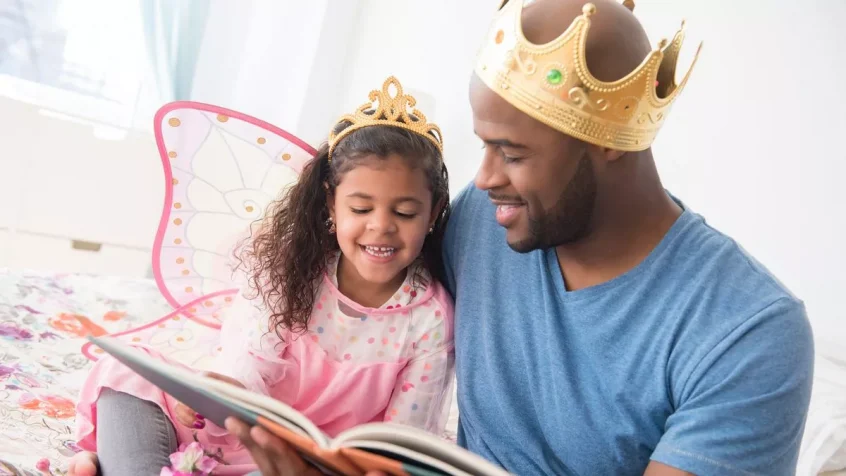You don’t need to convince me that kids need their dads. I’ve written about it many times. Now here’s some great news for fathers. They can personally give their children a head start at primary school and all they have to do is read, draw and play with them.
Professors Mark Elliot and Colette Fagan from Manchester University found children do better at primary school if their fathers regularly get involved with these activities. Analysing primary school test scores for five- and seven-year-olds, the researchers examined a sample of nearly 5,000 mother-father households in England from the Millennium Cohort Study, which collected data on children born between 2000-02 as they grew up.
They found children whose fathers had regularly drawn, played and read with them aged three did better at school when aged five. Dads being involved at age five also helped improve scores at age seven.
Dr Helen Norman, study lead from Leeds University, said: “Mothers still tend to assume the primary carer role and therefore tend to do the most childcare, but if fathers actively engage in childcare too, it significantly increases the likelihood of children getting better grades in school. This is why encouraging and supporting fathers to share childcare with the mother, from an early stage in the child’s life, is critical.”
This stunning effect of dads was independent of the child’s gender, ethnicity, age in the school year and household income. Mums and dads have different effects. Mums have more of an impact on young children’s emotional and social behaviours than educational achievement.
The message for dads is spend as much time as you can in interactive activities with your children each week. For busy working dads, just 10 minutes a day could potentially have educational benefits.
Schools and early years education teachers should take both parents’ contact details (where possible) and develop specific ways to engage fathers. Furthermore, Ofsted should take explicit account of father engagement in their inspections.
“Our analysis has shown that fathers have an important, direct impact on their children’s learning – we should be recognising this and actively finding ways to support dads to play their part, rather than engaging only with mothers, or taking a gender-neutral approach,” said co-author Dr Jeremy Davies.
Andrew Gwynne MP, chairman of the All-Party Parliamentary Group on Fatherhood, said: “This study shows even small changes in what fathers do, and in how schools and early years settings engage with parents, can have a lasting impact on children’s learning. It’s absolutely crucial that fathers aren’t treated as an afterthought.”

